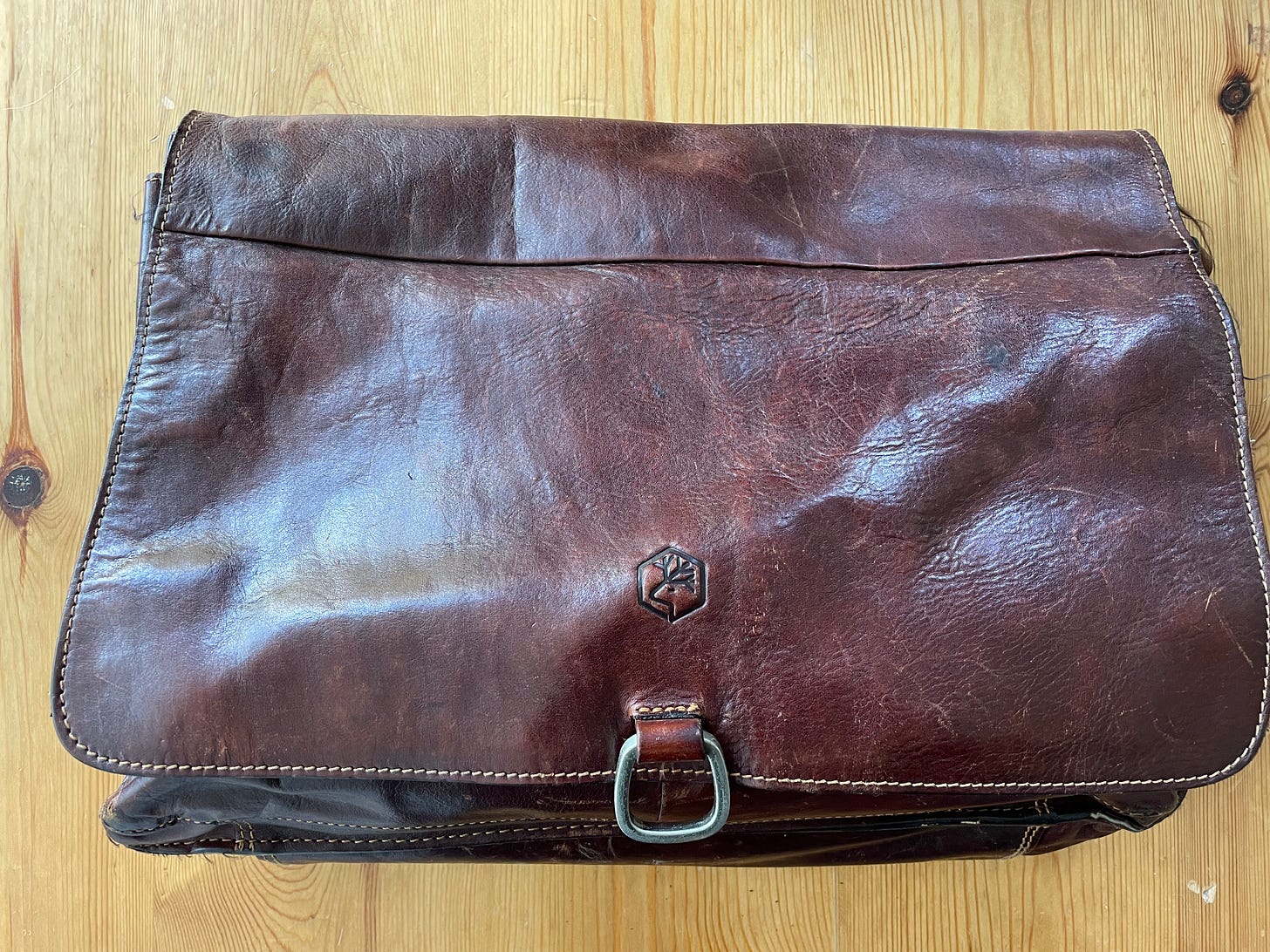Patina vs. Dullness
Wisdom versus Knowledge
I still use a bag I bought thirty years ago in Florence. It’s used most days, and I’d miss it if it were gone. It’s becoming a candidate for a visit to a saddler, and I owe it that when I think where we’ve been and what it’s carried over that time. It has a patina that is impossible to replicate; quality of use over time. Patina requires that something is in constant use; otherwise, time just makes it dull.
I found myself thinking about that after yesterday’s post about “value over time”, and the relationship of knowledge to practice and plans to action. Most of the knowledge I have absorbed during my life, particularly that acquired in formal education, is dull. Rarely brought out, and rarely used. Much the same is true I suspect of most business training, and the leadership variety in particular.
The useful parts however, that resonate with us, get worked, like polish, into the cracks of our practice as that practice develops a patina.
Look closely at the practice of those we admire. We can see the flaws, where the metaphorical stitching needs replacing, where the material is worn, and where it has gathered stains from disappointment and failure in daily use. Still, it has something else - a depth, a feel, and a familiarity that means it is part of us. We know how to use it despite, and often because of, its idiosyncrasies.
Most of the plans and strategies I see are dull, made from bits of knowledge found lying about, glued together quickly and put into a shiny deck in the hope of making a short-term impact before being discarded.
Practice, on the other hand, rarely needs plans and strategies, because whatever it encounters it has seen before, in some form, and the experience has become part of it, part of the patina of the artisan.
If you find yourself walking into something uncertain, always choose tools with patina over the new and shiny. New and shiny doesn’t know what it doesn’t know. Patina has a sense of it, and that’s a very big difference,
Culture may eat strategy for breakfast, but culture is made from practice, not knowledge.



Practice and presence, so closely intertwined. Thanks, Richard 🌿